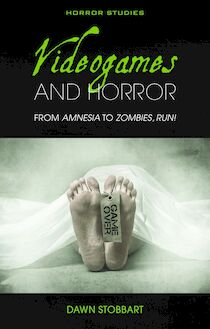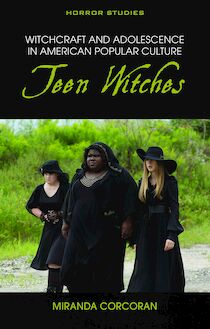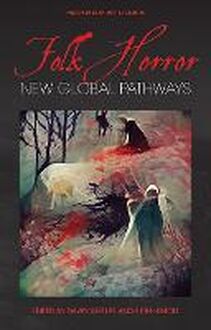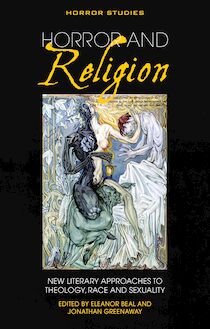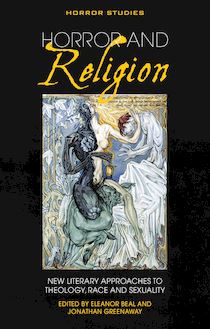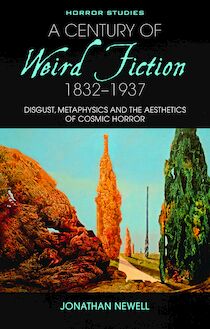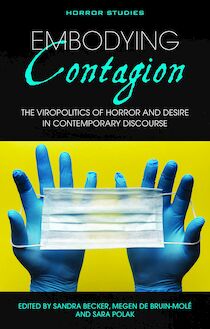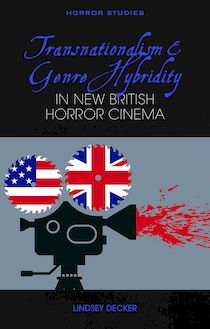-
 Univers
Univers
-
 Ebooks
Ebooks
-
 Livres audio
Livres audio
-
 Presse
Presse
-
 Podcasts
Podcasts
-
 BD
BD
-
 Documents
Documents
-
- Cours
- Révisions
- Ressources pédagogiques
- Sciences de l’éducation
- Manuels scolaires
- Langues
- Travaux de classe
- Annales de BEP
- Etudes supérieures
- Maternelle et primaire
- Fiches de lecture
- Orientation scolaire
- Méthodologie
- Corrigés de devoir
- Annales d’examens et concours
- Annales du bac
- Annales du brevet
- Rapports de stage
La lecture à portée de main
Vous pourrez modifier la taille du texte de cet ouvrage
Découvre YouScribe en t'inscrivant gratuitement
Je m'inscrisDécouvre YouScribe en t'inscrivant gratuitement
Je m'inscrisEn savoir plus
Vous pourrez modifier la taille du texte de cet ouvrage
En savoir plus

Description
The ‘macabre’, as a process and product, has been haunting the theatre – and more broadly, performance – for thousands of years. In its embodied meditations on death and dying, its thematic and aesthetic grotesquerie, and its sensory-rich environments, macabre theatre invites artists and audiences to trace the stranger, darker contours of human existence. In this volume, numerous scholars explore the morbid and gruesome onstage, from freak shows to the French Grand Guignol; from Hell Houses to German Trauerspiel; from immersive theatre to dark tourism, stopping along the way to look at phantoms, severed heads, dark rides, haunted mothers and haunting children, dances of death and dismembered bodies. From Japan to Australia to England to the United States, the global macabre is framed and juxtaposed to understand how the theatre brings us face to face with the deathly and the horrific.
Acknowledgements
Contributors
Introduction: I Made the Dance of Death - Meredith Conti
Part I. Histories of the Macabre
The Mortification of Harvey Leach: Humour and Horror in Nineteenth-Century Theatre of Disability - Michael M. Chemers
The Horrors of the Great War on the London Stage: The Grand Guignol Season of 1915 - Helen E.M. Brooks
Phantoms of the Stage: The History and Practice of Uncanny Apparitions - Richard J. Hand
Part II. Dramaturgies of the Macabre
Time and Punishment: Gothic Maternal Bodies on the Contemporary British Stage - Kelly Jones
The Body Dismembered: Allegory and Modernity in German Trauerspiel - Magda Romanska
Macabre Children on the Australian Stage: Angela Betzien’s Cycle of Crime Plays - Chris Hay and Stephen Carleton
Martin McDonagh’s Hangmen: Justice and Guilt in Public and Private Acts of Hanging - Michelle C. Paull
Fear of Death and Lyrical Flight: Mortality Salience Mediation in Fun Home - Christopher J. Staley
Part III. Staging the Macabre
The Severed Head on Stage - Kevin J. Wetmore, Jr.
Dancing Haunted Legacies: Diana Szeinblum’s Alaska - Jeanmarie Higgins
‘To Die Over and Over Inside My Body’: Three Deaths in Hijikata Tatsumi’s Butoh - J. E. F. Ooi
Part IV. The Immersive Macabre
‘Black and Deep Desires’: Sleep No More and the Immersive Macabre - Dan Venning
The Dark Ride Immersive and the Danse Macabre - David Bisaha
Liveness and Aliveness: Chasing the Uncanny in the Contemporary Haunt Industry - David Norris
American Hells: Hell Houses, Abortion Frames, and Unsexed Women - Robyn Lee Horn
Haunting the Stage: Macabre Tourism, Lieux de Mémoire, and the Immortal Death of Abraham Lincoln at Ford’s Theatre - Meredith Conti
Bibliography
Index
Sujets
Informations
| Publié par | University of Wales Press |
| Date de parution | 01 mars 2022 |
| Nombre de lectures | 0 |
| EAN13 | 9781786838476 |
| Langue | English |
Informations légales : prix de location à la page 0,2850€. Cette information est donnée uniquement à titre indicatif conformément à la législation en vigueur.
Extrait
THEATRE AND THE
Macabre
HORROR STUDIES
Series Editor
Xavier Aldana Reyes, Manchester Metropolitan University
Editorial Board
Stacey Abbott, Roehampton University
Linnie Blake, Manchester Metropolitan University
Harry M. Benshoff, University of North Texas
Fred Botting, Kingston University
Steven Bruhm, Western University
Steffen Hantke, Sogang University
Joan Hawkins, Indiana University
Alexandra Heller-Nicholas, Deakin University
Agnieszka Soltysik Monnet, University of Lausanne
Bernice M. Murphy, Trinity College Dublin
Johnny Walker, Northumbria University
Maisha Wester, Indiana University Bloomington
Preface
Horror Studies is the first book series exclusively dedicated to the study of the genre in its various manifestations – from fiction to cinema and television, magazines to comics, and extending to other forms of narrative texts such as video games and music. Horror Studies aims to raise the profile of Horror and to further its academic institutionalisation by providing a publishing home for cutting-edge research. As an exciting new venture within the established Cultural Studies and Literary Criticism programme, Horror Studies will expand the field in innovative and student-friendly ways.
THEATRE AND THE
Macabre
EDITED BY MEREDITH CONTI AND KEVIN J. WETMORE, JR
© The Contributors, 2022
All rights reserved. No part of this book may be reproduced in any material form (including photocopying or storing it in any medium by electronic means and whether or not transiently or incidentally to some other use of this publication) without the written permission of the copyright owner except in accordance with the provisions of the Copyright, Designs and Patents Act. Applications for the copyright owner’s written permission to reproduce any part of this publication should be addressed to the University of Wales Press, University Registry, King Edward VII Avenue, Cardiff, CF10 3NS.
www.uwp.co.uk
British Library Cataloguing-in-Publication Data
A catalogue record for this book is available from the British Library.
ISBN 978-1-78683-845-2
eISBN 978-1-78683-847-6
The rights of The Contributors to be identified as authors of this work have been asserted in accordance with sections 77 and 79 of the Copyright, Designs and Patents Act 1988.
The publisher has no responsibility for the persistence or accuracy of URLs for any external or third-party internet websites referred to in this book, and does not guarantee that any content on such websites is, or will remain, accurate or appropriate.
For Ryan and For Lacy
Contents
Acknowledgements
Contributors
Introduction: I Made the Dance of Death
Meredith Conti
Part One: Histories of the Macabre
1. The Mortification of Harvey Leach
Humour and Horror in Nineteenth-Century Theatre of Disability
Michael Mark Chemers
2. The Horrors of the Great War on the London Stage
The Grand Guignol Season of 1915
Helen E. M. Brooks
3. Phantoms of the Stage
The History and Practice of Uncanny Apparitions
Richard J. Hand
Part Two: Dramaturgies of the Macabre
4. Time and Punishment
Gothic Maternal Bodies on the Contemporary British Stage
Kelly Jones
5. The Body Dismembered
Allegory and Modernity in German Trauerspiel
Magda Romanska
6. Macabre Children on the Australian Stage
Angela Betzien’s Cycle of Crime Plays
Chris Hay and Stephen Carleton
7. Martin McDonagh’s Hangmen
Justice and Guilt in Public and Private Acts of Hanging
Michelle C. Paull
8. Fear of Death and Lyrical Flight
Mortality Salience Mediation in Fun Home
Christopher J. Staley
Part Three: Staging the Macabre
9. The Severed Head on Stage
Kevin J. Wetmore, Jr
10. Dancing Haunted Legacies
Diana Szeinblum’s Alaska
Jeanmarie Higgins
11. ‘To Die Over and Over Inside My Body’
Three Deaths in Hijikata Tatsumi’s Butoh
J. Hoay-Fern Ooi
Part Four: The Immersive Macabre
12. ‘Black and Deep Desires’
Sleep No More and the Immersive Macabre
Dan Venning
13. The Dark Ride Immersive and the Danse Macabre
David Bisaha
14. Liveness and Aliveness
Chasing the Uncanny in the Contemporary Haunt Industry
David Norris
15. American Hells
Hell Houses, Abortion Frames and Unsexed Women
Robyn Lee Horn
16. Haunting the Stage
Macabre Tourism, Lieux de Mémoire and the Immortal Death of Abraham Lincoln at Ford’s Theatre
Meredith Conti
Bibliography
Acknowledgements
T HE EDITORS would like to thank the University of Wales Press and especially Sarah Lewis and series editor Xavier Aldana Reyes. Thank you to the contributors to this collection, who created essays of boldness and perceptivity, and to Ian Downes for providing invaluable editorial support in the final months of this project. We remain grateful for the faculty, students and staff at our home institutions, the University at Buffalo, SUNY (UB) and Loyola Marymount University.
Meredith would like to thank three generous communities of scholars whose support and insights benefitted her research on macabre tourism and sites of gun violence: the University at Buffalo’s Humanities Institute and her cohort of 2019–20 Faculty Fellows; the university’s Gender Institute; and the American Society for Theatre Research’s ‘In Memoriam’ working group convened by D. J. Hopkins, Shelley Orr and Alison Urban. She is grateful to UB colleagues Carrie Tirado Bramen, Becky Burke, Anne Burnidge, David Castillo, Lindsay Brandon Hunter, Eero Laine, Christina Milletti, Ariel Nereson, Danielle Rosvally, Maki Tanigaki and Hilary Vandenbark, as well as the graduate and undergraduate students in her ‘Horror Theatre’ course. Meredith would also like to thank Ryan, Milo, Vivian and Bo.
Kevin would like to thank his family (Lacy, Kevin III and Cordelia), the staff of the William H. Hannon Library, Samuel L. Leiter and the students in his ‘Horror and Terror on Stage’ seminar and ‘Haunting of Hannon’ performance series.
Contributors
David Bisaha is an assistant professor of theatre history and theory at Binghamton University, SUNY. His research on twentieth-century scenic design and the more recent history of immersive and participatory performance has been published in Theatre Survey , Theatre and Performance Design and Theatre History Studies .
Helen E. M. Brooks is reader in theatre and cultural history at the University of Kent. She is primary investigator on the community-research ‘Great War Theatre’ project and co-investigator on the Arts and Humanities Research Council projects ‘Performing Centenaries’ and ‘Gateways to the First World War’. Prior to working on First World War theatre, she published widely on eighteenth-century theatre.
Stephen Carleton is an associate professor and the director of the Centre for Critical and Creative Writing at the University of Queensland. He also teaches on the drama major in the School of Communication and Arts. Carleton is a playwright and theatre scholar, with particular research interests in Australian theatre, Gothic drama, cultural landscapes and playwriting.
Michael Mark Chemers is professor of dramatic literature at the University of California, Santa Cruz. He is the author of several works on disability and monstrosity in performance, including Staging Stigma: A Critical Examination of the American Freak Show (Palgrave Macmillan, 2008) and The Monster in Theatre History: This Thing of Darkness (Routledge, 2018).
Meredith Conti is an associate professor of theatre at the University at Buffalo, SUNY and a historian of nineteenth-century performance and popular culture in the United States and Great Britain. She is the author of Playing Sick: Performances of Illness in the Age of Victorian Medicine (Routledge, 2019) and of published essays on medicine and theatre, the 1893 Chicago World’s Fair, and gun violence on the US American stage.
Richard J. Hand is professor of media practice at the University of East Anglia. He has a special interest in popular performance culture, especially horror, using critical and practical research methodologies. He is the author of books on Grand Guignol horror theatre, horror radio drama, and horror and Gothic film.
Chris Hay is senior lecturer in drama and an Australian Research Council Discovery Early Career Research Award Fellow in the School of Communication and Arts at the University of Queensland. He is an Australian theatre and cultural historian whose research examines the history of arts subsidy in Australia and the impact of state funding on the nation’s live-performance culture.
Jeanmarie Higgins is an associate professor in the School of Theatre at the Pennsylvania State University. A new works dramaturg in theatre and dance, Higgins publishes widely on the intersection of theory and practice. She is the editor of Teaching Critical Performance Theory in Today’s Theatre Classroom, Studio and Communities (Routledge, 2020).
Robyn Lee Horn is a PhD candidate at the University at Buffalo, SUNY. Her research focuses on performance and religion in the United States. Ongoing projects explore embodiments of rhetoric, eschatological temporality and the biblical imaginary. She is the managing director of Alleyway Theatre in Buffalo, New York.
Kelly Jones is a senior lecturer in drama at the University of Lincoln, where her work focuses on staging the Gothic as well as theatrical realisations of the supernatural. She has co-edited Contemporary Gothic Drama: Attraction, Consummation and Consumption on the Modern British Stage (Palgrave Macmillan, 2017) and is currently working on a monograph, The Ghost Story on the English Stage .
David Norris has worked in the scare entertainment industry for over a decade as a performer, writer, director and producer. He is a lecturer at University Campus Oldham and a PhD candidate at the University of Birmingham. His research centres on immersive horror, with a particular emphasis on its relationship to identity.
J. Hoay-Fern Ooi is a PhD candidate in the English
-
 Univers
Univers
-
 Ebooks
Ebooks
-
 Livres audio
Livres audio
-
 Presse
Presse
-
 Podcasts
Podcasts
-
 BD
BD
-
 Documents
Documents
-
Jeunesse
-
Littérature
-
Ressources professionnelles
-
Santé et bien-être
-
Savoirs
-
Education
-
Loisirs et hobbies
-
Art, musique et cinéma
-
Actualité et débat de société
-
Jeunesse
-
Littérature
-
Ressources professionnelles
-
Santé et bien-être
-
Savoirs
-
Education
-
Loisirs et hobbies
-
Art, musique et cinéma
-
Actualité et débat de société
-
Actualités
-
Lifestyle
-
Presse jeunesse
-
Presse professionnelle
-
Pratique
-
Presse sportive
-
Presse internationale
-
Culture & Médias
-
Action et Aventures
-
Science-fiction et Fantasy
-
Société
-
Jeunesse
-
Littérature
-
Ressources professionnelles
-
Santé et bien-être
-
Savoirs
-
Education
-
Loisirs et hobbies
-
Art, musique et cinéma
-
Actualité et débat de société
- Cours
- Révisions
- Ressources pédagogiques
- Sciences de l’éducation
- Manuels scolaires
- Langues
- Travaux de classe
- Annales de BEP
- Etudes supérieures
- Maternelle et primaire
- Fiches de lecture
- Orientation scolaire
- Méthodologie
- Corrigés de devoir
- Annales d’examens et concours
- Annales du bac
- Annales du brevet
- Rapports de stage
